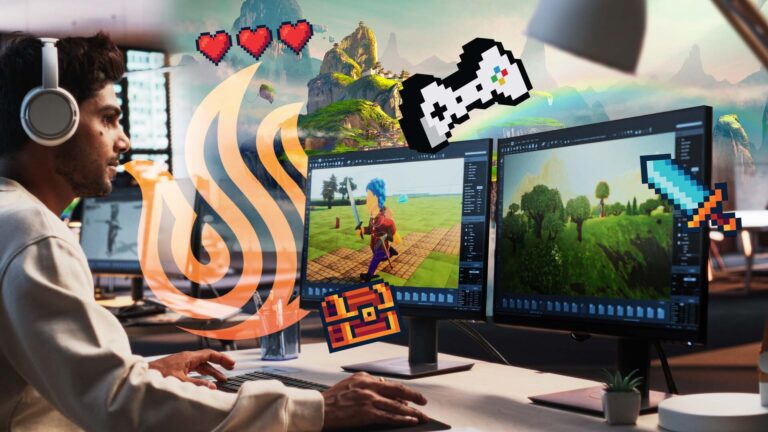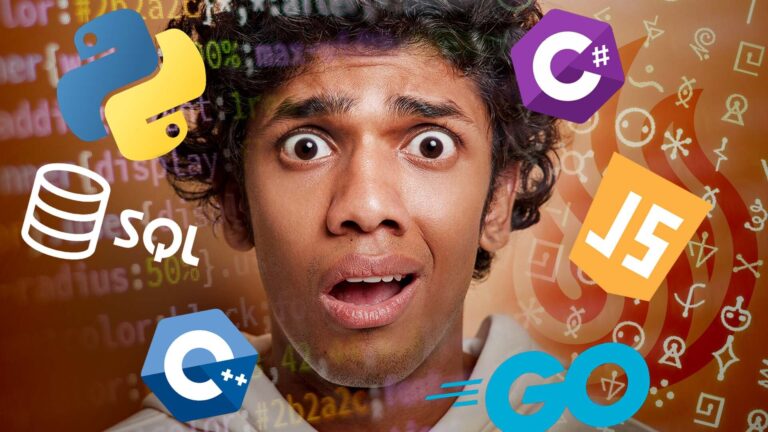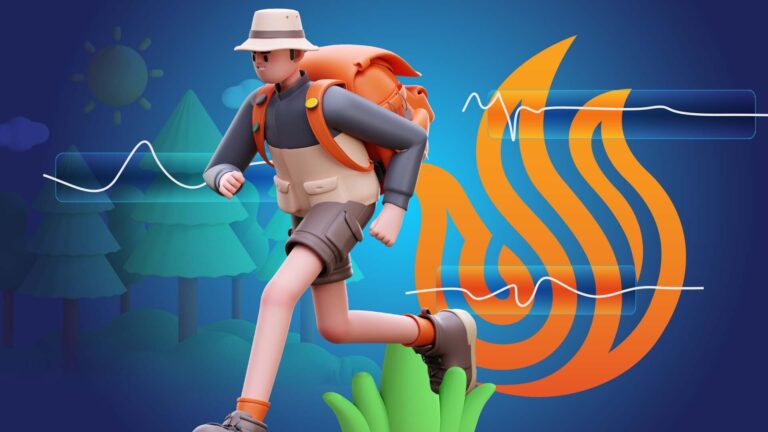The gaming industry has come a long way since the days of pixelated graphics and simple gameplay. With technological advancements driving innovation, we’ve witnessed stunning visual effects, intricate storylines, and immersive experiences that transport players to fantastical worlds. However, the next frontier in gaming doesn’t just rely on better graphics or more complex narratives – it’s all about artificial intelligence (AI). How will AI affect the gaming industry?
AI has already made significant inroads into the gaming world, and its impact is poised to be nothing short of revolutionary. In this blog post, we’ll delve into how AI is set to transform the gaming industry and what it means for developers, designers, and players.
Redefining Gameplay
Imagine a game that adapts to your unique playing style, challenging you just enough to keep you engaged but never frustrating you to the point of quitting. This is the promise of AI in gaming. Machine learning algorithms can analyze your behaviors, strategize accordingly, and offer a truly personalized gaming experience.
For example, AI-powered NPCs (non-playable characters) can learn from your actions and adapt their tactics in real-time, making every encounter feel fresh and unpredictable. Whether you’re facing off against AI-controlled enemies or working alongside AI teammates, the gameplay experience becomes richer and more immersive.
Enhanced Graphics and Realism
While AI is more renowned for its contributions to gameplay, it’s also playing a significant role in improving graphics and overall realism. AI-driven algorithms can generate lifelike textures, environments, and characters, taking visuals to a whole new level. This enables game developers to create worlds that are virtually indistinguishable from reality.
Furthermore, AI-powered physics engines can simulate realistic interactions between objects and characters. Imagine the satisfaction of seeing trees sway realistically in the wind or water that responds dynamically to your movements – all made possible through AI.
Streamlining Game Development
Game development is a lengthy and resource-intensive process. AI can help streamline this process by automating various tasks. For instance, AI can assist in generating procedural content, such as terrain, levels, and quests, reducing the burden on developers and allowing them to focus on more creative aspects of the game.
Additionally, AI-driven testing can identify bugs and glitches more efficiently, ensuring a smoother and more polished gaming experience at launch. This not only saves time and money but also leads to higher customer satisfaction.
Personalized Storytelling
With the ability to analyze player choices and behaviors, AI can tailor the narrative to each individual’s preferences. This means that no two players will have the exact same story experience, making games more replayable than ever.
Dynamic storytelling can also lead to moral dilemmas, branching narratives, and unexpected plot twists, all based on the choices you make throughout the game. This level of personalization keeps players engaged long after the initial playthrough.
Balancing Challenge & Enjoyment
One challenge in implementing AI in gaming is finding the right balance between challenge and enjoyment. AI-driven NPCs that adapt to the player’s skill level can make a game more engaging, but they must be careful not to become too challenging or frustrating. Striking this delicate balance is a complex task that requires constant fine-tuning and iteration by developers.
Fairness & Accessibility
As AI becomes more prevalent in multiplayer and competitive games, concerns about fairness and accessibility come to the forefront. AI could potentially be used to create “cheat” programs that give players an unfair advantage, undermining the integrity of online gaming. Game developers will need to invest in robust anti-cheat systems to ensure a level playing field for all.
Additionally, accessibility is a concern. AI-driven content should not inadvertently exclude players with disabilities. Game developers must ensure that AI-powered features are configurable to accommodate different needs and preferences, such as providing alternative ways to interact with the game.
Data Privacy & Security
AI relies heavily on data, and in the gaming industry, this data often includes personal information about players. The collection and use of player data by AI systems raise important privacy and security concerns. Developers must implement robust data protection measures, comply with relevant regulations, and be transparent about data usage to build trust with players.
Ethical AI Behavior
Developers need to ensure that AI-driven characters and interactions adhere to ethical guidelines, avoiding harmful or offensive behavior. Furthermore, AI should not promote harmful stereotypes or discriminatory practices within games.
Monetization & Microtransactions
AI can be used to optimize monetization strategies in games, which can have both positive and negative consequences. On the positive side, AI can help create more personalized and fair monetization systems, ensuring that in-game purchases are relevant to the player’s preferences. However, there is a risk that AI-driven microtransactions could encourage addictive behaviors or exploit vulnerable players. It’s important to strike a balance between profitability and player well-being.
Job Displacement & Development Costs
The adoption of AI in game development may also impact the job market. Automation of certain tasks, like content generation or testing, could potentially lead to job displacement within the industry. Developers must consider how to retrain and redeploy their workforce in response to these changes.
Moreover, implementing AI technologies can initially incur higher development costs, as it requires specialized expertise and resources. Smaller game studios may face challenges in adopting AI, potentially giving a competitive advantage to larger companies.
The Evolving Role of Game Designers
With AI taking on a more significant role in game development, the role of game designers is evolving. Designers are becoming “AI choreographers,” shaping how AI behaves and interacts with players. They must possess a deep understanding of AI capabilities and limitations to craft compelling gaming experiences.
Prepare for Your Dream Career at USV
Becoming a video game designer or developer requires a combination of passion, creativity, technical skills, and industry knowledge. If you dream of working in the gaming industry and harnessing the power of AI, University of Silicon Valley can help you turn that dream into reality.
We can prepare you for success in the creative-technology industries by providing an engaging, real-world education inspired by the entrepreneurial spirit of our Silicon Valley location. We also offer our courses in Game Design and Development online.
Check out the many programs offered by our Game Design and Development department, and learn how to make the games you want to play! Apply now, request more info, or come visit our campus. Get ready to take your gaming skills to the next level!


